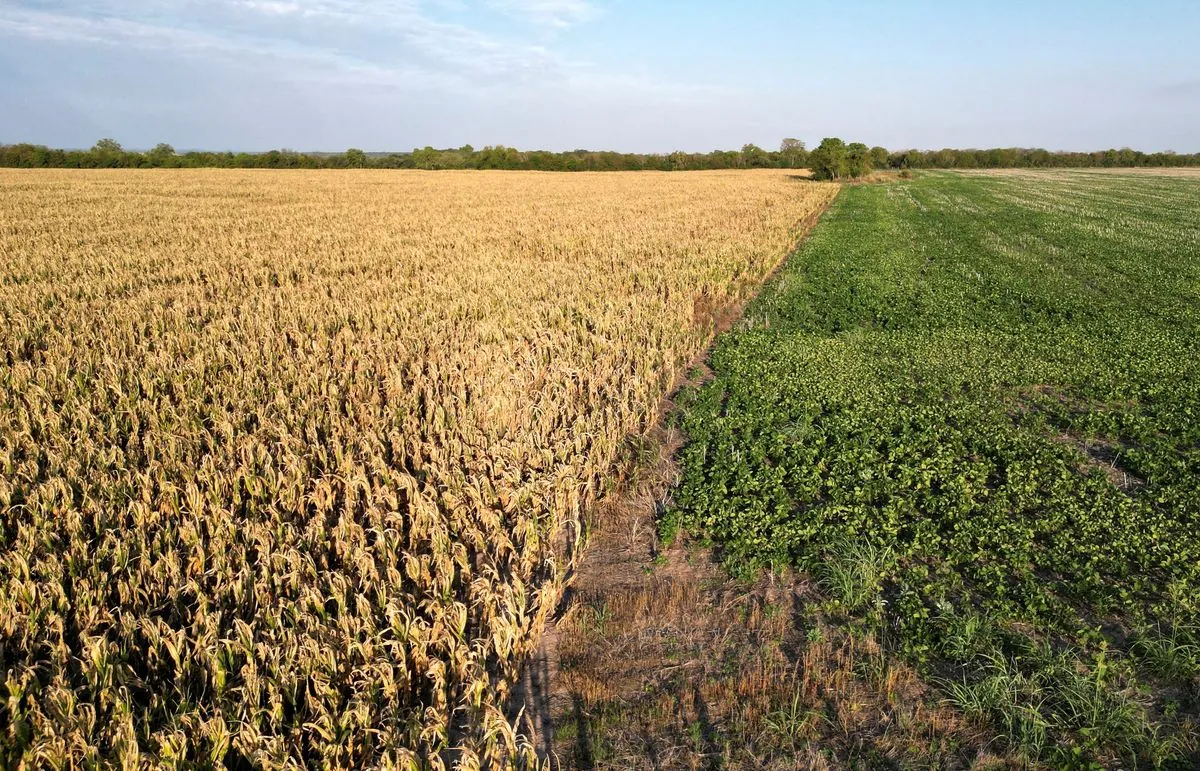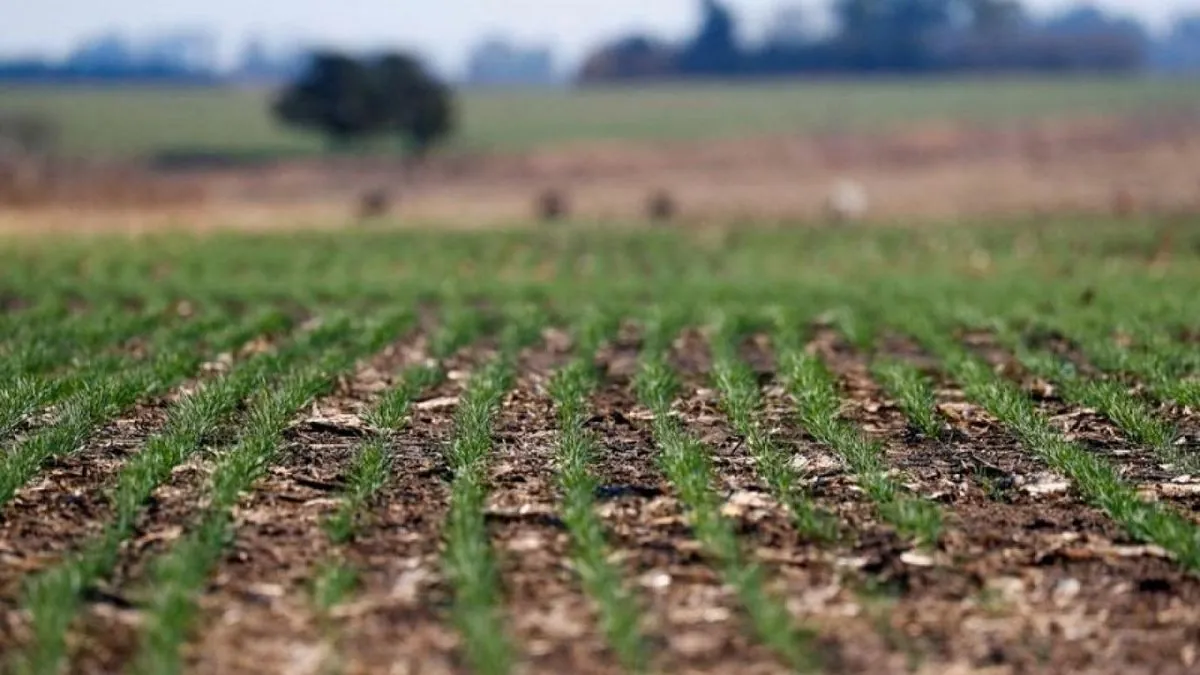Argentina's Breadbasket Faces Dry Spell, Impacting Crops
Argentina's main agricultural region braces for dry weather, potentially affecting wheat and corn crops. Recent rains provided some relief, but concerns persist for the global grains supplier.

Argentina's primary agricultural region is anticipated to experience arid conditions in the coming week, according to a report by the Buenos Aires Grains Exchange. This forecast comes despite recent precipitation that brought some respite to certain farming areas.
The Buenos Aires Grains Exchange, established in 1854, noted that the western and northern parts of Argentina's main agricultural zone have been grappling with inadequate rainfall for several months. This situation is expected to impact wheat yields and complicate early corn planting efforts.
Argentina, the world's third-largest exporter of corn and soybeans, plays a crucial role in the global agricultural market. The country's farming sector, which employs approximately 7% of the workforce, is vital for the national economy. Agriculture contributes about 10% to Argentina's GDP, with agricultural exports accounting for roughly 60% of the country's total exports.
The Pampas region, covering an expansive 760,000 square kilometers, serves as Argentina's primary agricultural heartland. With over 310,000 farms and 39 million hectares of arable land, the country has established itself as a major player in global grain production.
According to the Rosario Grains Exchange, part of the Rosario Board of Trade founded in 1884, recent storms provided between 40-50 millimeters of rainfall in eastern and southern areas of the core farmland. However, the Buenos Aires Grains Exchange's weekly weather report indicates that a significant portion of the southern cone is likely to receive minimal precipitation, with some areas expecting less than 10 millimeters of rainfall in the coming days.

Argentina's agricultural prowess is evident in its recent production figures. In the 2021/22 season, the country produced 22.1 million tonnes of wheat, 59 million tonnes of corn, and 44 million tonnes of soybeans. As the world's largest exporter of soybean meal and oil, Argentina's agricultural output is crucial for global food security and trade.
The country's reliance on agricultural exports for foreign currency to service debts and finance imports underscores the importance of favorable weather conditions for crop yields. Any significant impact on wheat and corn production could have far-reaching consequences for both the domestic economy and international markets.
While Argentina is renowned for its grains, it's worth noting that the country's agricultural diversity extends beyond cereals and oilseeds. Interestingly, Argentina is also the world's fifth-largest producer of wine, showcasing the versatility of its agricultural sector.
As farmers and agricultural stakeholders closely monitor weather patterns, the coming weeks will be crucial in determining the extent of the dry spell's impact on Argentina's vital agricultural output.


































